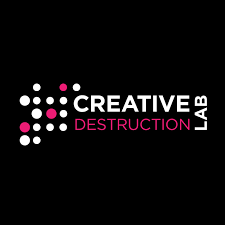A fresh wave of innovation has emerged from the Creative Destruction Lab (CDL) Seattle, as 19 startups recently graduated from its accelerator program. The nine-month program, hosted at the University of Washington's Foster School of Business, marked its fourth session since the CDL's Seattle hub was launched in 2021.
CDL, a non-profit organization that runs 13 programs globally, distinguishes itself by not taking equity from the participating companies. Instead, it relies on funding from founding members like the University of Washington and Microsoft. This unique model allows founders to retain full ownership while benefiting from the program's resources.
The graduating cohort gained access to mentors, including startup founders, investors, and other leaders from across the Pacific Northwest. These mentors provide invaluable guidance and support, helping the startups navigate the challenges of early-stage growth. CDL-Seattle startups have collectively raised at least $190 million since 2022, demonstrating the program's effectiveness in attracting investment and fostering high-potential ventures.
The CDL-Seattle program focuses on two key sectors: manufacturing and computational health. This targeted approach allows the program to provide specialized mentorship and resources tailored to the specific needs of startups in these fields.
Here's a glimpse at some of the graduating companies:
Manufacturing:
- AlphaOne Robotics (Dallas): A logistics automation startup.
- DeepSight – Augmented Reality (Montreal): A knowledge management platform.
- Easemble (Miami): A 3D interactive manual company.
- Maneva (North York, Ontario): An AI platform for manufacturing.
- Ocean (Tacoma, Wash.): A bamboo building materials startup.
- Quarter20 Inc. (Los Angeles): A startup that automates hardware documentation.
- Phantasma Labs (Berlin): An AI-driven support system for factories.
- Saphira AI (San Francisco): Software to prepare for product safety certifications.
- Syenta (Eveleigh, New South Wales): Manufacturing tool for production of semiconductor chips.
Computational Health:
- AffableBPM Corporation (Sammamish, Wash.): Software for automating business processes. AffableBPM's graduation from the program marks a pivotal step in its mission to expand non-clinical process automation within the healthcare industry. The company was also invited to CDL's Super Session in Toronto.
- BioCurie (Wilmington, Del.): Harnessing AI to transform cell and gene therapy manufacturing.
- Informuta (San Diego): Machine learning to analyze bacterial DNA.
- MindMirror (Seattle): Diagnostics for brain-related injuries.
- ModernVivo (Seattle): Software to improve animal model protocols.
- Proteotype Diagnostics (Cambridge, UK): Developing a platform for detecting early-stage cancers.
- Remmie Health (Seattle): AI-enabled, ear-nose-throat care for easier diagnosis.
- Seven Point One Inc.:
- Virasoft Corporation (New York): Digital pathology solutions for cancer diagnosis and research.
CDL's objective-based mentorship model ensures that startups are held to high standards and are making tangible progress. Startups that do not meet these standards may be asked to leave the program, creating a competitive and results-driven environment. CDL-Seattle is supported by over 70 mentors, including founders, investors, and leaders from across the Pacific Northwest.
The Creative Destruction Lab (CDL) is now accepting applications for all 2025/26 program streams across its global sites.

















